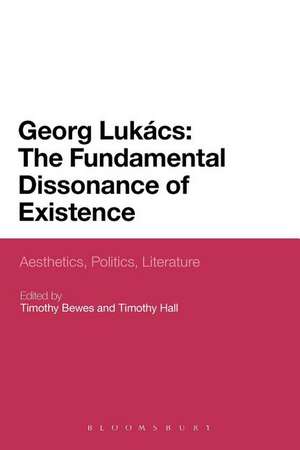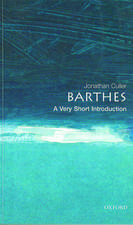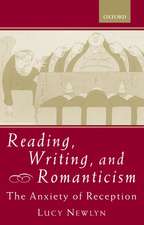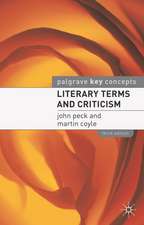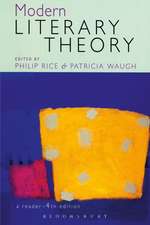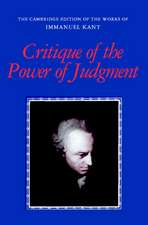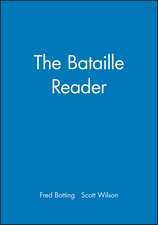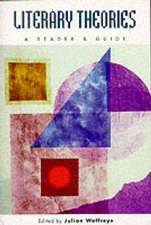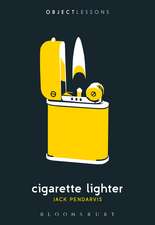Georg Lukacs: The Fundamental Dissonance of Existence: Aesthetics, Politics, Literature
Editat de Professor Timothy Bewes, Dr Timothy Hallen Limba Engleză Paperback – 31 oct 2012
Preț: 257.41 lei
Nou
Puncte Express: 386
Preț estimativ în valută:
49.26€ • 52.67$ • 41.07£
49.26€ • 52.67$ • 41.07£
Carte tipărită la comandă
Livrare economică 17 aprilie-01 mai
Preluare comenzi: 021 569.72.76
Specificații
ISBN-13: 9781441164674
ISBN-10: 1441164677
Pagini: 256
Dimensiuni: 156 x 234 x 13 mm
Greutate: 0.36 kg
Editura: Bloomsbury Publishing
Colecția Bloomsbury Academic
Locul publicării:London, United Kingdom
ISBN-10: 1441164677
Pagini: 256
Dimensiuni: 156 x 234 x 13 mm
Greutate: 0.36 kg
Editura: Bloomsbury Publishing
Colecția Bloomsbury Academic
Locul publicării:London, United Kingdom
Caracteristici
Of interest to scholars and postgraduates in literary studies, cultural and social theory, politics and art
Notă biografică
Timothy Hall is Senior Lecturer in the Department of International Politics at the University of East London, UK. He is co-author of The Modern State: theories and ideologies (Edinburgh University Press, 2007).
Cuprins
Acknowledgements \ Abbreviations \ Introduction: Fundamental Dissonance Timothy Bewes and Timothy Hall \ Part I: Paradoxes of Form \ 1. Temporalized Invariance: Lukács and the Work of Form, Yoon Sun Lee \ 2. How to Escape from Literature? Lukács, Cinema, and The Theory of the Novel, Timothy Bewes \ 3. Capitalist and Bourgeois Epics: Lukács, Abstraction and the Novel, David Cunningham \ 4. Typing Class: Classification and Redemption in Lukács's Political and Literary Theory, Patrick Eiden-Offe \ Part II: Life, History, Social Theory \ 5. Lukács sans Proletariat, or Can History and Class Consciousness be Re-historicized? Neil Larsen \ 6. Rethinking Reification, Andrew Feenberg \ 7. Justice and the Good Life in Lukács's History and Class Consciousness, Timothy Hall \ 8. Capitalist Life in Lukács, Stewart Martin \ Part III: Aesthetic Reframings \ 9. Art for Art's Sake and Proletarian Writing, Georg Lukács 10. The Historical and Political Context of Lukács's 'Art for Art's Sake and Proletarian Writing', Andrew Hemingway \ 11. 'Fascinating Delusive Light': Georg Lukács and Franz Kafka, Michael Löwy \ 12. The Historical Novel After Lukács, John Marx \ 13. Realism, Totality, and the Militant Citoyen: Or, What Does Lukács Have to Do With Contemporary Art? Gail Day \ Appendix \ 14. An Entire Epoch of Inhumanity (1964 Preface to Probleme des Realismus, III), Georg Lukács \ Contributors \ Index
Recenzii
"Materialist and formalist, realist and utopian, ontological and prophetic, militant and rebel, György Lukacs remains a disturbing oxymoron to be interpreted - therefore transformed. In truly dialectical and dialogical manner, this books succeeds in doing just that, burying the verdicts of obsolescence, illuminating the ambivalences, and making again of the "principle of totality" which traverses the philosopher's writings a category for radically overturning an alienated society."
Reviewed in Radical Philosophy 171.
Reviewed in Radical Philosophy 171.
